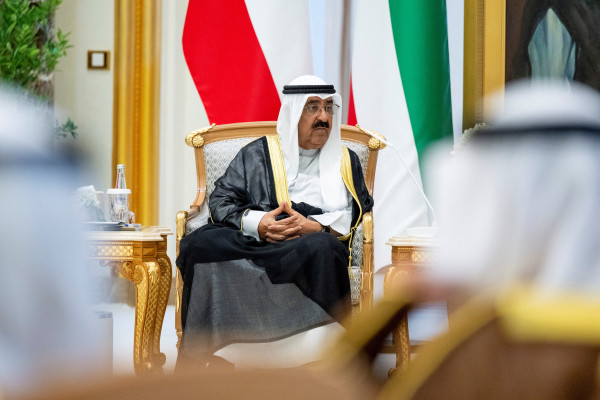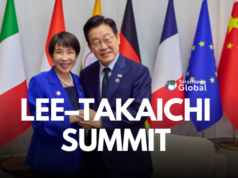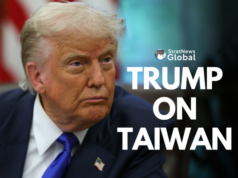
Prime Minister Modi arrives in Kuwait on Saturday, the only country in the Gulf region he has never visited. This may appear odd for a country that is India’s sixth largest supplier of crude oil, has one million Indians living and working there and has invested around $10 billion in various ventures in India.
“In fact, among the six states that make up the Gulf Cooperation Council (GCC- Bahrain, Kuwait, Oman, Qatar, Saudi Arabia, UAE) Kuwait has had a lower profile even though it was perhaps the first sheikhdom where Indians flocked to find work in the 1970s,” says Mahesh Sachdev, former diplomat who served in the Gulf.
Partly this may be due to its tough neighborhood. Look at the map, tiny Kuwait with Iraq and Saudi Arabia as neighbours to the north and west, and Shia power Iran sitting across the Strait of Hormuz (Shias make up an estimated 35% of Kuwait’s population, the majority being Sunni).
That would partly explain Kuwait’s low profile and the reticence of its leadership. It can also be attributed to internal turbulence owing to divisions among Kuwait’s ruling royals, which may have affected external outreach.
India, for its part, may have been looking elsewhere, at the UAE and Saudi Arabia that were using revenues from oil to aggressively woo customers and develop their economies.
But now Modi is seeking to square the circle, with the aim of rebuilding the political relationship and renewing economic ties (current trade is less than $11 billion with India’s exports around $2 billion).
Kuwait too senses opportunities with the Emir Sheikh Meshal al-Ahmad seeing a need to catch up for lost times. It explains the invitation to Modi.
The Emir also sent his Foreign Minister Abdullah al-Yahya to Delhi earlier this month and the decks were cleared to set up a joint commission that will oversee working groups in areas ranging from hydrocarbons to health, trade, investment and education to security and culture.
The Kuwaiti push is also a recognition of Modi making the Gulf a major focus of his diplomacy, visiting the UAE alone seven times since 2014 and signing a comprehensive economic partnership agreement in 2022.
From Saudi Arabia to Oman and Qatar, Modi has sought to expand the contours of the relationship, deepening energy linkages and even touching on sensitive security issues.
“Witness the steady increase in the joint naval exercises we are doing with Gulf states,” argues Ambassador Sachdev, “without tomtomming to the world, India has emerged as a low-profile source of security and stability to the sheikhdoms.”
This is important given the general lack of trust the Gulf states repose in their former colonial masters like Britain, that will find ways to interfere in local politics and cultivate spheres of influence.
The US too, has 60,000 troops stationed in the Gulf but has also been distancing itself from the Gulf states. It no longer needs their oil or gas, in fact it’s competing with them. And its unalloyed support for Israel has not gone down well in the Arab street.
In that sense, India has no hidden agendas. India and Indians are generally easier to engage with, not inclined to meddle in their domestic matters and have no grand strategic plans to dominate the region.
But India’s external profile is changing. It has a view on Israel’s war in Gaza, which it articulates at international fora. It has also leveraged its relationship with Russia and the US to be seen as a credible player in seeking to help end the war in Ukraine.
The Indian diaspora has also come into its own, perhaps it needed somebody like Modi to help it emerge from its shell.
When he addresses the Hala Modi event in Kuwait on Saturday, with around 5000 expected to attend, it has implications not only for India and Kuwait, it is going to be watched by millions in the region, underscoring the India Story.
Thirty eight years in journalism, widely travelled, history buff with a preference for Old Monk Rum. Current interest/focus spans China, Technology and Trade. Recent reads: Steven Colls Directorate S and Alexander Frater's Chasing the Monsoon. Netflix/Prime video junkie. Loves animal videos on Facebook. Reluctant tweeter.




